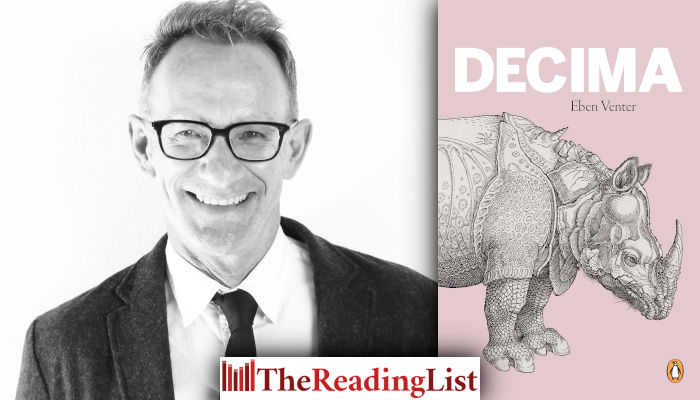Five minutes with Eben Venter on his new novel Decima
More about the book!

He wanted to show that rhinos are sentient beings, says Eben Venter about his latest novel, Decima, which will be published in both English and Afrikaans.
Your book navigates a line between fact and fiction and is called autofiction. Why this approach for this specific work?
My story includes a history of the rhinoceros as well as the contemporary life and times of the black rhinoceros. This part of the story is based on facts. When Decima slumbers under spekboom, I am using my imagination; I wanted to inhabit the mega-herbivore as much as is humanly possible. This part of the story is fiction.
Where you fairly informed about rhino poaching when you began your project, or where your knowledge limited to the occasional news report?
I have to state emphatically that Decima is not about rhino poaching. There are heaps of thrillers on that subject, and they are all the same in that the human, that is the poacher and anti-poacher, is always in the forefront. Sure, I include the storyline of poaching in my narrative, but first and foremost the story is about the rhinoceros as a sentient being – a living, feeling creature with memory, with a life. How do we humans treat her, how have humans historically treated the rhinoceros, and how does she treat us? In order to write about this animal/human relationship I had to do extensive research in libraries and on the ground, mostly in Mpumalanga.
What made you tackle this very heavy and emotional subject?
In the most recent report of the IPCC, the Intergovernmental Report on Climate Change, it states clearly that our Blue Planet has reached a tipping point: continue with the eradication of more species and their habitat and we as humans will permanently endanger our own existence. One such species is the rhinoceros. Decima is a timely and highly topical book about the precious black rhinoceros. What is this being? How should we (re)think about the black rhino in order to respect her, our environment and ourselves?
You use different voices – even that of your mother. Why this technique?
The points-of-view differ, so does the tone. There is that of the narrator, i.e. myself; at times my mother tells the story; then I let the two impoverished poachers speak; from the bush comes Decima’s voice; the ranger, Ziyanda’s; there are the two researchers travelling to Hong Kong and so on. A layered, multiple voiced story set in different countries, calling upon the reader to understand this creature in a totally different way.
Decima, both the Afrikaans and English versions, is out in June.
~~~
This article was originally published in The Penguin Post, a magazine from Penguin Random House South Africa.
Categories Afrikaans Fiction South Africa
Tags Afrikaans Decima Eben Venter Penguin Random House SA The Penguin Post
